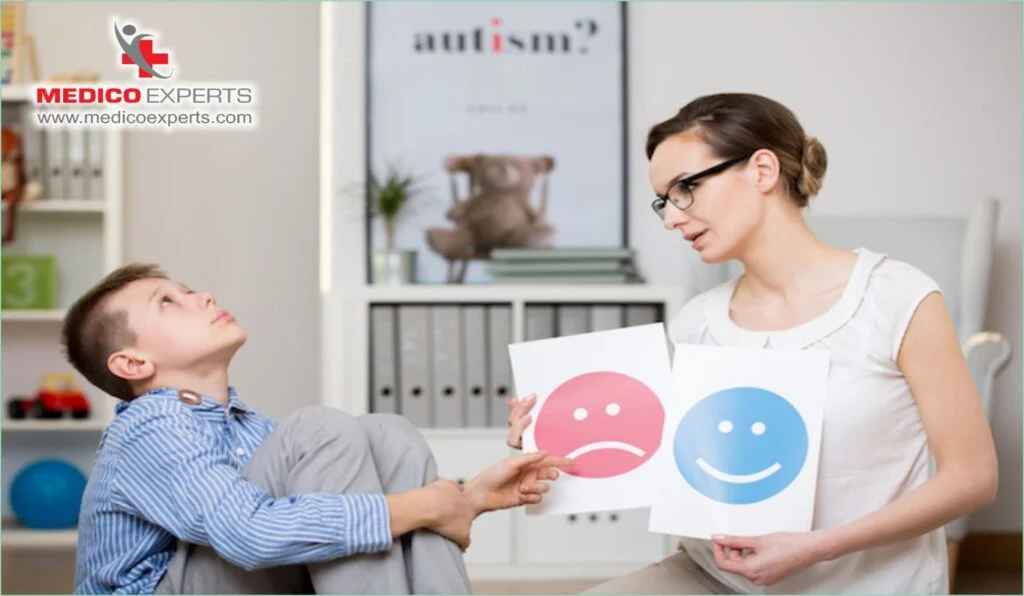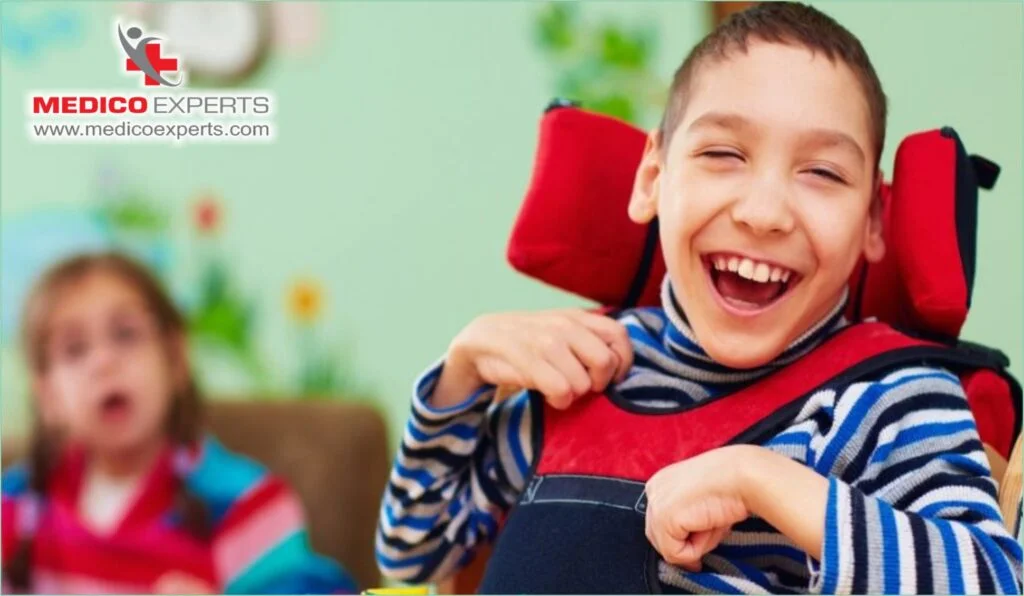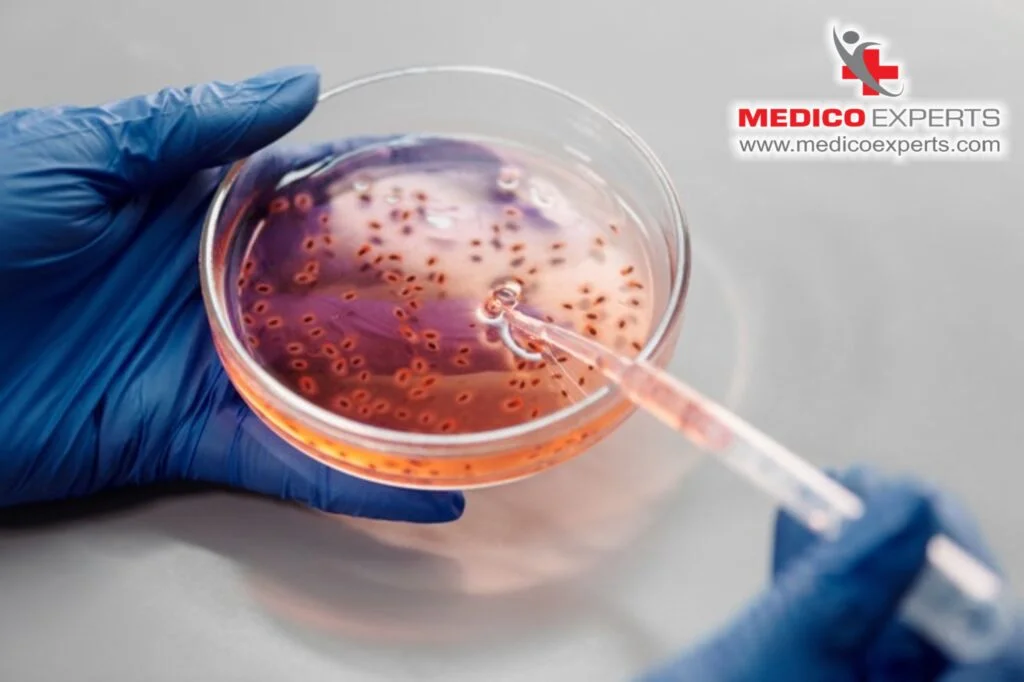Are you eager to see your child’s progress in overcoming autism?
Recognizing autism recovery signs can give you hope and clarity in your child’s developmental journey.
Let’s explore these signs and how you can support your child’s path toward independence.
Recognizing these signs will also help you celebrate your child’s achievements, reduce anxiety about their future, and feel more confident about supporting their overall development successfully and effectively.
Is Recovering from Autism Possible?

Recovery from autism is very much possible. Though there is no cure for autism, you can give your child an independent and self-reliant life with early detection and proper treatment.
Stem cell therapy has shown some amazing results in recovery or remission from autism. With combination therapy, these results can be improved further.
But at the same time, you should keep in mind that the severity of autism is different from child to child. Apart from that, early detection plays a vital role in the recovery process.
But how would you know that there is recovery in your child? For that, you need to know the autism recovery signs. So, let’s have a look at them.
What are the Key Autism Recovery Signs?

Stem cell treatment can give relief from the symptoms of autism and help your child lead an independent life. Although stem cell therapy works best in very young children, children between 10 and 15 years of age can also significantly recover from it.
You will need a team of experts which will include stem cell specialists, pediatricians, neurologists, speech therapists, psychologists, and orthopedists to get complete support. Together these specialists will make your child’s recovery process smooth and easy.
When your child is recovering, you will see the following key recovery signs in them:
1. Improved Social Interaction:
Children with autism find it hard to be involved in social interactions. They may have issues while developing friendships in school or other social settings.
The child may also show interest in interacting with others, initiating interactions, and responding to social cues (verbal or non-verbal signals expressed through face, hands, or voice).
The recovery of your child will also reflect when they engage in playing with friends, share their toys, and take turns in games. They will also try to form meaningful relationships with their family members and friends.
2. Reduction in Hyperactivity:
You will find a significant reduction in his hyperactive behaviours, such as the constant urge to fidget, the tendency to move around, and the lack of ability to remain still.
Moreover, your child will be able to handle emotions and, therefore, there will be a major reduction in meltdowns or aggressive behaviour.
3. Better Communication:
Communication problems are prominent signs of autism and when you see an improvement in it, you should know that your child is recovering.
You see an increase in vocabulary, ability to form sentences, and interest in two-way communications if your child is in the process of remission.
Additionally, there will be a better comprehension of language, following instructions, and expressing needs and desires.
4. Increased Independence:
Your child may begin to perform routine tasks and activities with less support from you. There will be improvements in their ability to perform tasks like dressing, eating, and maintaining personal hygiene with minimal assistance.
Your child’s ability to follow daily routines and participate in structured activities will improve. They will also start understanding and practising safety rules and guidelines.
This means you no longer need to worry about your child’s future as an independent individual.
5. Better Sensory Processing:
Your child will develop better management of sensory sensitivities like noise, textures, and lights and also have a reduced sensory overload. Sensory overload is when your 5 senses take in more than your brain can process.
There will also be an increased willingness to participate in various sensory experiences and activities.
6. Boost in Cognitive and Academic Skills:
You will see the progress in academic skills: an increased ability to learn new concepts and retention of that information. You will also notice an elevation in problem-solving and independence while completing a task.
Moreover, your child’s attention span will be enhanced, leading to an increase in the ability to focus on a task.
7. Reduction in Repetitive Behaviour:
Autistic children like the certainty and predictability of daily chores, routines, and rituals. Any change in these routines and rituals is not liked by these children.
If they are recovering from autism, they will not get upset when routines are changed. Apart from that, your child will have less frequent repetitive movements like hand-flapping and rocking.
You will also see an increase in willingness to try new activities and completely different routines.
How Does Stem Cell Therapy Boost Autism Recovery?

Stem cell therapy can boost your child’s autism recovery process. This therapy uses your body’s regenerative power by transforming stem cells into specialized cell types that help repair and regenerate damaged tissues.
One of the biggest advantages of using stem cell therapy in treating autism is paracrine signalling—when a cell emits substances that have a bearing on other cells right next to it—and immunomodulatory actions, which influence the process of the immune system by releasing growth factors to nearby cells.
You will see a gradual recovery from autism in your child with stem cell therapy. You may notice reduced hyperactivity, and over time, enhanced eye contact, speech, and communication within 15 days of the therapy.
The success rates of this cell-based therapy are 50 to 60 percent for mild to moderate cases and about 30 percent for severe cases
For better outcomes, the team of specialists may recommend a combination of Applied Behavior Analysis (ABA) therapy with stem cell therapy.
Generally, the benefits you get from the therapy are sustainable but there can be a decline in 5 to 10 percent of cases.
In such instances, the child may need to repeat the therapy cycles to achieve functional independence.
To get a better recovery, you will need a team of specialists which will include a stem cell therapist, pediatricians, neurologists, speech therapists, psychologists, and orthopedists.
MedicoExperts can bring together the best specialists in India to make your child’s autism recovery process smooth and hassle-free.
What are the do’s and don’ts of boosting recovery of your child with autism?

You, as a parent, play an important role in the recovery of your autistic child and to speed up a successful recovery process you should make sure that you do your bit in the right way. Let’s learn in detail how you can speed up your child’s autism recovery.
Don’ts
Here are some common things to avoid when interacting with a child with autism:
Avoid using punishment or physical force
Children with autism may not understand the consequences of their actions, and physical force or punishment hamper the recovery process.
Don’t make assumptions
Avoid assuming that a child with autism cannot understand or communicate, or that they do not feel emotions. Mostly because children with autism may not show emotions like other people without the condition do, but they do have them.
Avoid labelling or stigmatizing
Children with autism are unique individuals, and it’s important to avoid labelling or stigmatizing them based on their diagnosis. Only an inclusive environment can boost an autistic child’s recovery process.
Don’t ignore medical concerns
Children with autism may have medical issues that are related to their condition or comorbid conditions, such as gastrointestinal problems or sleep disturbances. These issues should be addressed by a healthcare provider.
Don’t take things too personally
Your child may respond in a way that you may not understand. They may have a meltdown, completely ignore you, or walk away from you. These sudden reactions from them can hurt your feelings. But try to keep your feelings and emotions under control.
Flexibility can help you make the connection and bond between you and your child stronger.
Don’t be dismissive of their experiences
Though your child might struggle in communication or even try to express their thoughts or feelings, their experiences and views are real and important to them.
Give them the scope to share them with you. Dismissive behaviour can harm their recovery process.
Don’t stare at them
Your child may engage in behaviours like blinking their eyes repeatedly, jumping around, making noises, or flapping their hands, which help them feel comforted. If you constantly stare while they do these things, they may feel embarrassed.
There’s no need to document or judge their actions. The best way to support them is by letting them be themselves.
Don’t play with words or say things indirectly
Your child understands things literally and they may not understand indirect talks. When you try to speak directly and clearly with your child, they will know what you mean. Never use sarcasm, idioms, or exaggerations because that can confuse them
Learning how to communicate effectively with your child will help them handle future challenges more easily.
It’s important to approach children with autism with empathy, understanding, and respect, and to provide them with the support and resources they need to reach their full potential.
Do’s
There are some dos that you should try to follow as a parent of a child with autism:
Talk with them about their interest
Your child may show extreme interest in a topic. It can be a dinosaur, coins, maps, paintings, or anything. Talk with them on their favourite topic because while talking about these topics, they find comfort and it may also boost their confidence.
Be patient while they respond
Your child may take more time to respond to your questions and queries. Give them some time as autistic children need some time to process and understand what you are saying or asking.
Try to reduce their screen timing
Too much screen time can disturb your child’s sleep and increase irritation and hyperactivity. Limit the screen timing and spend the time talking and engaging in activities your child likes the most.
Motivate to build friendships
Your autistic child may have social challenges and they may not show interest in establishing friendships. But some children want to build friendships even if they cannot express their desire to do so in an appropriate manner.
Try to involve them in social gatherings like birthday parties or play dates to encourage them to build friendships.
Takeaway

You may feel confused and overwhelmed as a parent of an autistic child. But when you know how you can help your child grow into an independent individual, those confusions and anxieties go away. Also, you feel more equipped to give your child a better future.
Knowing the autism recovery signs is the best way to give your child a better and brighter future.
MedicoExperts can guide you throughout your child’s autism recovery journey by handholding you and speeding up the process and making it a successful one.
Testimonials: MedicoExpert’s Autism Recovery Stories
Ready to explore therapies that can accelerate your child’s recovery? Contact MedicoExperts today and get connected with top specialists for personalized autism care.
Frequently Asked Questions (FAQs):
Q1. What are the virtual autism recovery signs?
When young children below the age of 2 have excessive screen time, it can lead to ASD (Autism Spectrum Disorder) like symptoms and it is called virtual autism. You can gauge the recovery of your child if you see a reduction in hyperactivity, an increase in attention span, interest in plays and activities, a boost in speech and communication, and an improvement in social interactions.
Q2. How much time does it take to recover from virtual autism?
The recovery time will vary from child to child as every child is different and also their family environment is different. That’s why it is difficult to talk about a definite time for virtual autism recovery.
Q3. How much time does a child need to recover from mild autism?
Early diagnosis and intervention play an important role in mild autism recovery time. If you provide your child with proper treatment before the age of 3, the chances of recovery are much better and the child may recover within six to nine months.
Q4. How does L-carnosine help in autism recovery?
L-carnosine is the natural compound found in muscles and brains, exerting the role of antioxidants in working to protect the cells from damage. It also promotes the healthy functioning of the brain and, overall, well-being.
This particular compound will prevent cognitive decline and enhance the nervous system function in your child. That is how the L-carnosine supplement is useful for children with autism: it increases their speech, communication, and fine motor skills.
Q5. What is the best food for autism recovery?
The right kind of food will definitely boost your child’s autism recovery. High-quality proteins like chicken and egg, whole grains like oats and brown rice, fresh fruits and vegetables, beans, and legumes are the best foods for the autism recovery of your child.
Q6. What is the autism recovery rate in India?
The recovery rate depends on many factors like which doctor, which hospital, and which approach of treatment you are taking.
There is a regeneration process with the use of therapy of stem cell, which has the highest effectiveness with success levels of 50 to 60 percent for light to middle autism, and around 30% for faded autism. You will see these improvements within six months of treatment.
Homeopathy is also a treatment option that has a 20 to 40 percent improvement rate in cases of moderate and severe autism. You will see these improvements from two weeks to one year.
With the help of Ayurvedic treatment, you can get 50 to 60 percent improvement for mild autism and 30 to 40 percent for moderate cases.
All these recovery rates can vary from child to child.
Q7. Can a mild autistic child become normal?
Children with mild autism can live a normal and independent life if they get the right treatment early.
Q8. How long does autism recovery take?
If you are opting for stem cell therapy, you will see the signs of recovery within 6 months of treatment. In the case of homeopathy, the recovery may take two weeks to one year.
Q9. Can a child with autism recover fully?
As per experts, Around three to twenty-five percent of children completely recover from autism. But recovery totally depends on your child’s condition.
Q10. What is the best way to recover from autism?
Stem cell therapy is one of the best ways to recover from autism fast and successfully.
Q11. How to treat virtual autism at home?
You can treat your child’s virtual autism by reducing their screen time and encouraging them to interact with family and friends. If it is severe, your child will need an expert’s help.
Recommended Articles For You
Are you seriously concerned about the signs of infantile autism in your child? Signs of infantile autism can bring a lot of worries to the mind of the parents. Your child may…..Read More
As a parent of an autistic child, you may fear that your child may be bullied or treated differently in society. You may also fear that autism may prevent your child from living a…..Read More
Autism through the years: Does it go away with age?
Autism is a word that often invokes a vast number of emotions in the hearts of parents and caregivers who hear it in connection with a loved one……Read More
As a parent of an autistic child, you always have that constant question in your mind: Is autism curable? Will my child be normal? As per conventional medical sciences autism is…..Read More
References
- https://pubmed.ncbi.nlm.nih.gov/19009353/#:~:text=Abstract,cognitive%2C%20adaptive%20and%20social%20skills.
- https://www.nhs.uk/conditions/autism/autism-and-everyday-life/help-for-day-to-day-life/
- https://www.washingtonpost.com/gender-identity/an-autistic-child-might-have-a-tantrum-in-public-dont-stare-or-judge-the-parents/
- https://www.ncbi.nlm.nih.gov/pmc/articles/PMC4827600/
- https://www.ncbi.nlm.nih.gov/pmc/articles/PMC7688148/
- https://www.apa.org/about/policy/physical-discipline.pdf
- https://www.webmd.com/add-adhd/childhood-adhd/adhd-or-autism
- https://www.ncbi.nlm.nih.gov/pmc/articles/PMC9114801/
Recommendations To Understand Different Treatments
Stem Cell Therapy For Autism In India
As a parent of an autistic child, your dream is to help your child get rid of hyperactivity and overcome the lack of communication and social skills. You want to give your child a…..Read More
Clinically and Medically Reviewed By MedicoExperts Editorial & Clinically Review Board
Medical Disclaimer: The information provided is for educational purposes only and is not a substitute for professional medical advice, diagnosis, or treatment. Always consult your doctor or a qualified healthcare provider for personalized guidance regarding your child’s health.



